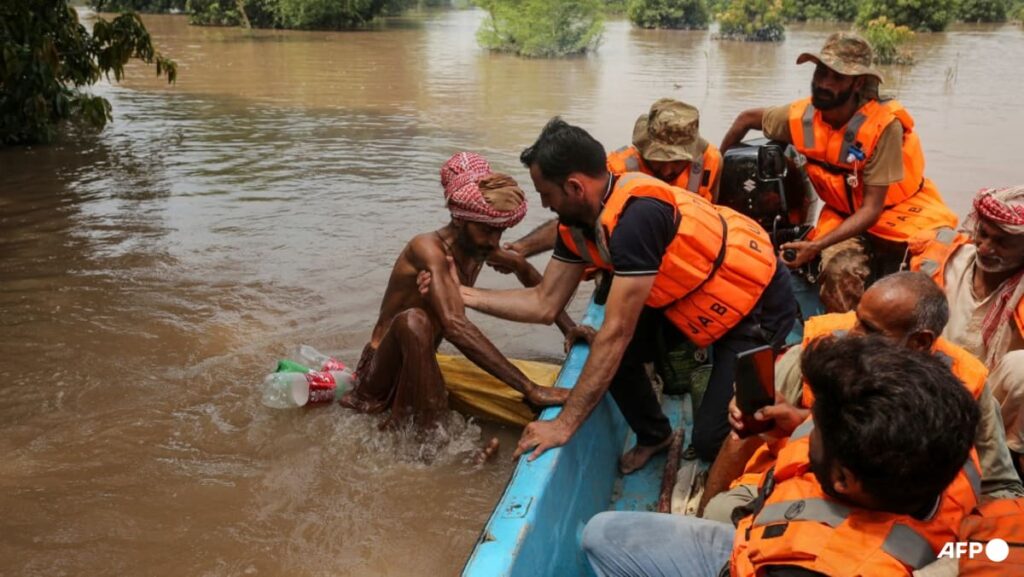WHAT’S THE FIX?
How is one of the world’s poorest countries going to fix this as the blows from global warming keep coming thicker and faster? Believe it or not, there’s a hopeful lesson in one of the darkest episodes of Pakistan’s own history.
In 1970, modern Bangladesh was a province of Pakistan, and found itself in a similar place. The Bhola Cyclone that year was the deadliest on record, killing an estimated 300,000 people as its storm surge inundated the low-lying country. Its victims found themselves abandoned by those they turned to for help: In this case, the West Pakistani elite, who made only fitful attempts at disaster relief, then blocked Bengali politicians from power after an election, and finally unleashed ethnic cleansing to suppress the growing nationalist movement.
Bangladesh’s long road from that war-torn moment to its present status, as an independent country about 50 per cent richer than Pakistan itself, is a testament to what change from below can accomplish. Despite its own deep vulnerability to natural disasters, the country has suffered fewer flood deaths in the past 25 years than Pakistan has experienced since 2020.
That’s largely been achieved without the sort of large-scale infrastructure that the likes of China and Japan have used to bulletproof themselves against catastrophes, and that Pakistan has neither the funding nor the project pipeline to build.
What’s been the secret? A crucial factor has been putting more power in the hands of women. Across South Asia, women are disproportionately at risk during natural disasters, in part because of fears of dishonour, violence and looting if they leave the family home to evacuate to shelters or relief camps. During 1991’s Cyclone Gorky in the Bay of Bengal, women accounted for about 93 per cent of the 140,000 killed.
Fixing such cultural issues can be hard, but Bangladesh has had success recruiting more women as disaster volunteers and early-warning coordinators. As those reforms have spread, death tolls in more recent cyclones hitting the country have been far lower, and more evenly balanced between genders. Pakistan has been learning a similar lesson: About 37 per cent of housing grants under a World Bank programme to rebuild from the 2022 floods have gone to women.
https://www.channelnewsasia.com/commentary/pakistan-floods-monsoon-deaths-rainy-season-climate-change-solutions-5337906


